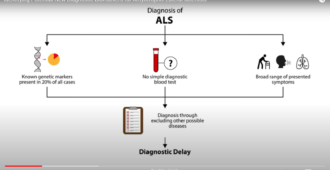Results of a recent poll suggest that the UK public is incredibly supportive of healthcare research within the NHS. These results will now be used as evidence that the developing Health and Social Care Bill should include statements about an obligation to fund and promote research within the NHS.
The results published today, state that a staggering 97% of people polled believe it is important for the NHS to support research into new treatments for patients and 92% believe it’s important for the NHS to support such research funded by charities.
990 adults were polled to find these figures, by one of the top polling agencies in the world, Ipsos MORI. They were commissioned by the Association of Medical Research Charities of which we are a member, Breast Cancer Campaign and the British Heart Foundation.
Commenting on the poll results, our director of research development, Dr Brian Dickie said that “The overwhelming support demonstrated in this poll indicates the importance that patients and public place on clinical research. Considerable advances are being made in understanding complex diseases such as motor neurone disease and the NHS will play a vital role in translating this new knowledge into better diagnostics and potential treatments. Medical research is no different from medical treatment in that it has to start and finish with the patient.”
We’ve known for a long time that people affected by MND place research high on their priority list and one of our aims is to enable people with MND to participate in research should they so wish. In order for us to achieve this, we will need the right infrastructure available within the NHS to support healthcare research – studies that involve people such as clinical trials, biomarker studies etc.
We’re currently funding a number of healthcare studies within the NHS that involve people with MND altruistically giving blood samples, answering questionnaires and having brain scans to bring us closer to understanding the causes and developing new tools for a quicker diagnosis.
One study we’re currently funding is trying to identify a specific MND ‘fingerprint’, known as a biomarker to speed up the diagnosis of MND. The study is called Biomarkers in Oxford (BioMOx) and is led by Dr Martin Turner from the University of Oxford, from within the John Radcliffe Hospital in Oxford. People with MND play a crucial role in this project.
Speaking about his project, Dr Martin Turner said that: “My sort of research simply can’t be done in a different model, either in a test tube or in a culture dish. It has to be based in patients. We recognise that we are asking them to come and do things that don’t directly benefit them, we’re not giving them a treatment, but it helps us to find out more about the disease. I never cease to be humbled by how much time people with give and what they’ll have done towards our goal of finding better treatments.”
It is vital that the NHS continues to support healthcare research, and to ensure that diseases, such as MND are not forgotten.
The results from the poll are a clear indicator that healthcare research should lay at the heart of the NHS, and should be stated in the developing Health and Social Care Bill.
Making our voice heard
We will continue to make our voices heard to ensure that MND care and research can thrive in the future so that we can move closer to finding a better treatment, and speeding up the diagnosis of MND.
If you’re interested in reading more about our campaigning activities and want to get involved, then please visit our campaigns website : http://mndcampaigns.org





